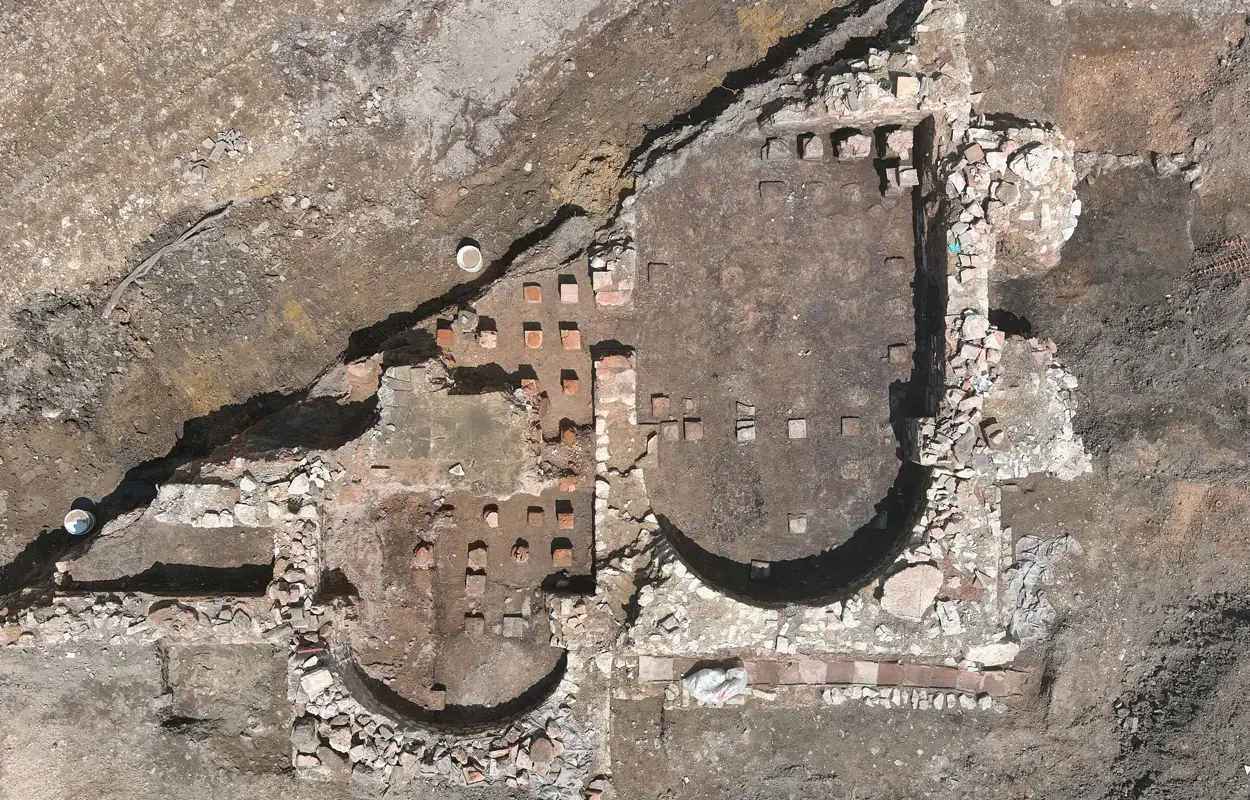Archaeologists from Inrap have revealed a vast Roman villa complex during excavations in Auxerre, France.
The site was first recognised for its archaeological potential in the 19th century, but it wasn’t until 1966 that the first excavation took place.
This initial investigation uncovered a rectangular structure with multiple rooms, a hypocaust system, and mosaics, which archaeologists dated to between the 1st and 4th centuries AD.
The National Institute for Preventive Archaeological Research (Inrap) has resumed excavations at the site, uncovering a vast 4,000 m² complex now recognised as one of the largest Roman villas in Gaul.
According to a press statement by Inrap, the 1966 structure was just a secondary wing of the complex, where excavations have also found a large square garden with an adjacent quadrangular fountain, galleries, reception rooms, service areas, and thermal baths.

The complex is surrounded to the west, north, and east by a perimeter wall, with all the domestic and service rooms encircling the central garden.
Initial findings suggest two, possibly three, distinct phases of construction, offering new insight into the villa’s development in parallel with ancient Autessiodurum (modern Auxerre), which transformed from a secondary settlement into a regional capital by the 4th century AD.
“These villae formed the heart of vast estates belonging to wealthy landowners who certainly constituted the political elite of ancient cities,” said Inrap.
The villa will be open to the public during the European Archaeology Days (JEA), an annual event held across Europe to celebrate the richness and diversity of archaeological heritage and highlight ongoing research and preservation efforts.
Header Image Credit : Inrap
Sources : National Institute for Preventive Archaeological Research





